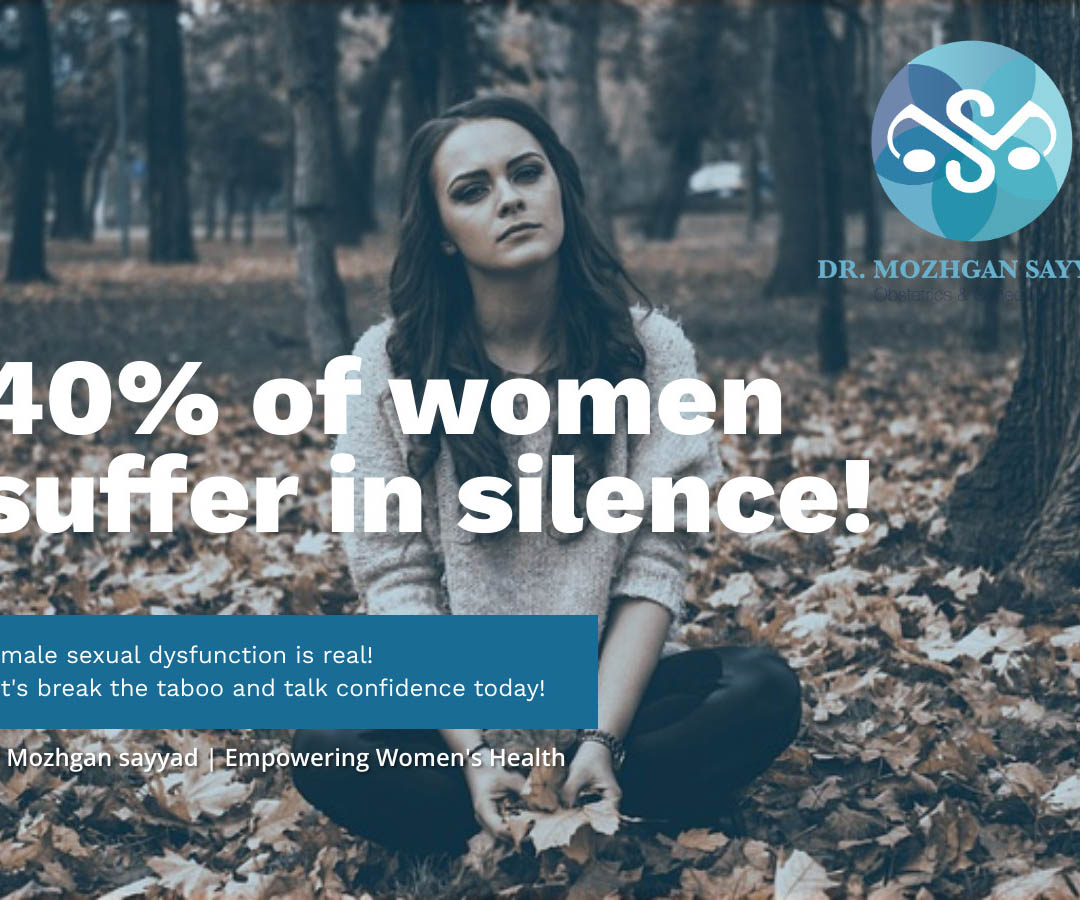Female sexual dysfunction is real.Even though More than 40 % of women suffering from one kind or combination forms of sexual dysfunction at one point of their lives, many people are hesitant or embarrassed to discuss the problem with their partner or their Doctor.
Empowering women health has been my passion for more than my 21 years of experience and I hope by providing this information I can help you to break the taboos of sexual dysfunction and persuade you to talk about it with your doctor. Because most cases of sexual dysfunction are treatable successfully, it is crucial to share your concerns with your doctor.
Empowering Women’s Health. Breaking the Taboo! Let’s talk Confidence!
Female sexual dysfunction
FSD stands for Female sexual dysfunction, refers to a problem during any phase of the sexual response cycle that prevents the individual or couple from experiencing satisfaction from the sexual activity.
The sexual cycle has four phases: excitement, plateau, orgasm, and resolution.
The most common types of female sexual dysfunction are:
1. Lack or absence of sexual desire
Many factors can contribute to this problem, most common causes are stress, fatigue, some medications and chemotherapy, chronic diseases like diabetes, cancer, cardiovascular disease and depression.
Doing repetitive sexual routines can cause a lack of libido, as can some other daily routines like severe job stress and heavy duties for housewife women like caring for children and exhausting routines in the home.
2. Lack or absence of arousal
For women, the inability to become physically aroused during sexual activity often causes insufficient vaginal lubrication. Anxiety and some of the cardiovascular or gynecologic disorders that can cause blood supply insufficiency to the area and also lack of proper sexual stimulation can cause this type of FSD
3. Lack of orgasm
This is the absence of sexual orgasm. It can be caused by a woman’s sexual inhibition, lack of experience, and insufficient knowledge about sex in couples.
Some psychological factors such as a history of rape or sexual abuse at past, anxiety and guilt feeling can contribute to this type of dysfunction. Other factors related to anorgasmia include lack of enough stimulation, some medications, and chronic diseases.
4. Painful intercourse
Pain during intercourse can be related to many situations. Vaginismus is a condition involving a muscle spasm in the pelvic floor muscles. It can make it painful, difficult, or impossible to have sexual intercourse, to undergo a gynaecological exam, and to insert a tampon. It can be related to some sexual phobia and need to be evaluated multidisciplinary.
Vaginitis, pelvic inflammatory diseases, endometriosis, ovarian cyst and tumours also can contribute to painful sex. Hormonal insufficiency and vaginal dryness can be a reason for painful sex during postpartum or postmenopausal period.
Female sexual dysfunction diagnosis:
The patient should be evaluated by a gynaecologist who is expert in this field. Physical exam, pap smear, Ultrasonography or another test can be helpful.
A questionnaire will be filled regarding sex, including asking about contributing factors (such as fear, anxiety, past sexual trauma/abuse, relationship problems, or alcohol or drug abuse).
This will guide the doctor to understand the underlying cause of the problem and make appropriate treatment recommendations.
Female sexual dysfunction treatment:
Education about human sexual function, female Genitalia anatomy and the normal changes associated with lactation or menopause, as well as sexual behaviours and related responses, may help a woman overcome her anxieties about sexual function and performance.
Psychotherapy, exercises, relaxation methods, Botox injections for vaginismus, PRP (Platelet-rich plasma) injections in the specific points of the female reproductive organ to enhance the libido and pleasure, vaginal laser treatment and surgery for anatomical reasons of sexual dysfunction can treat many cases of female sexual dysfunction.
Book an Appointment


